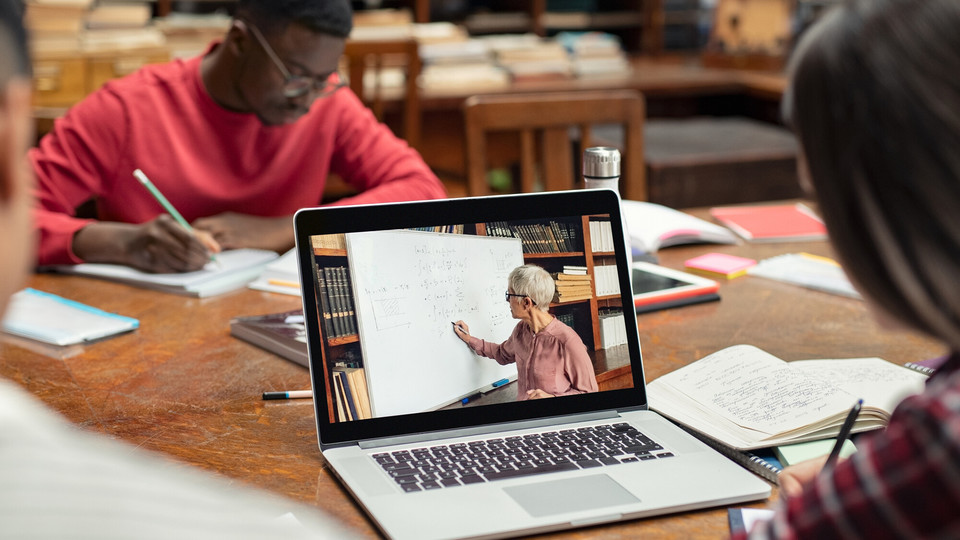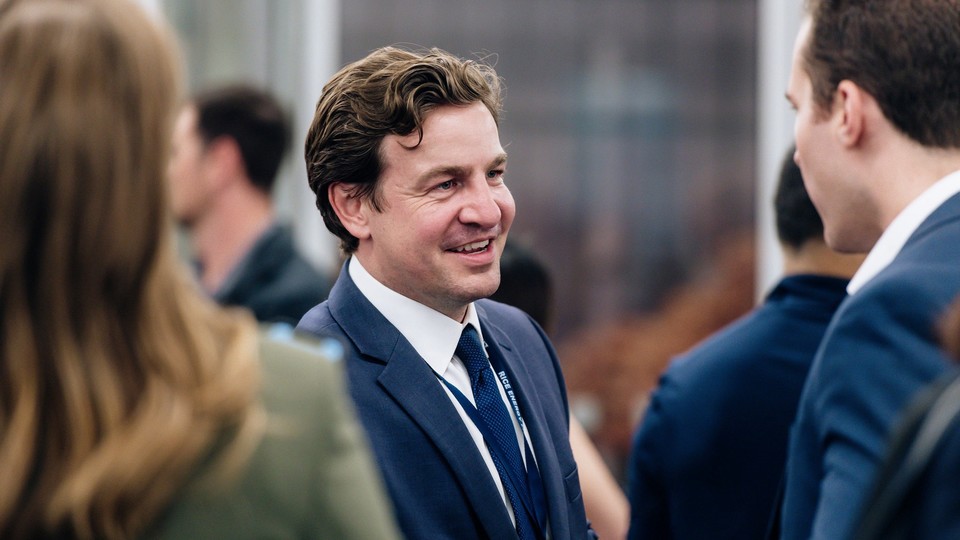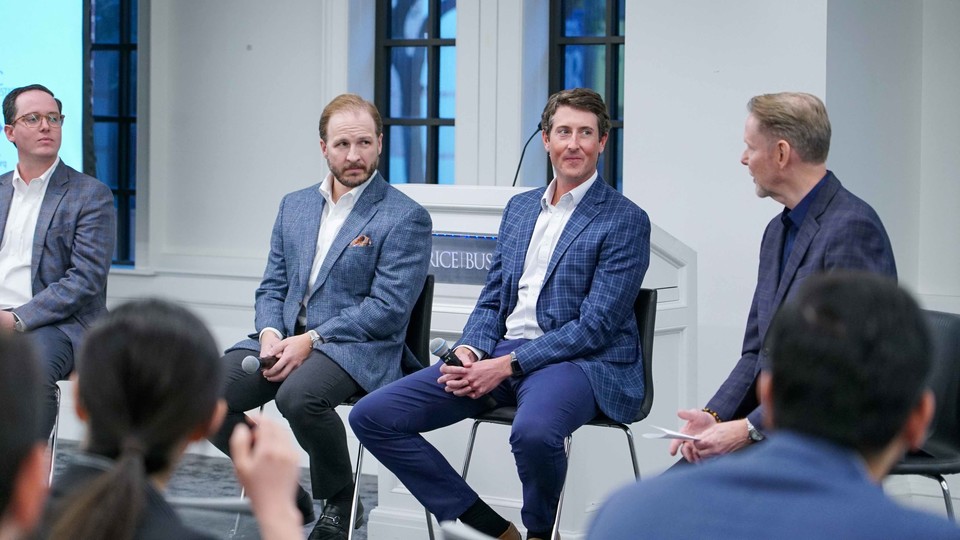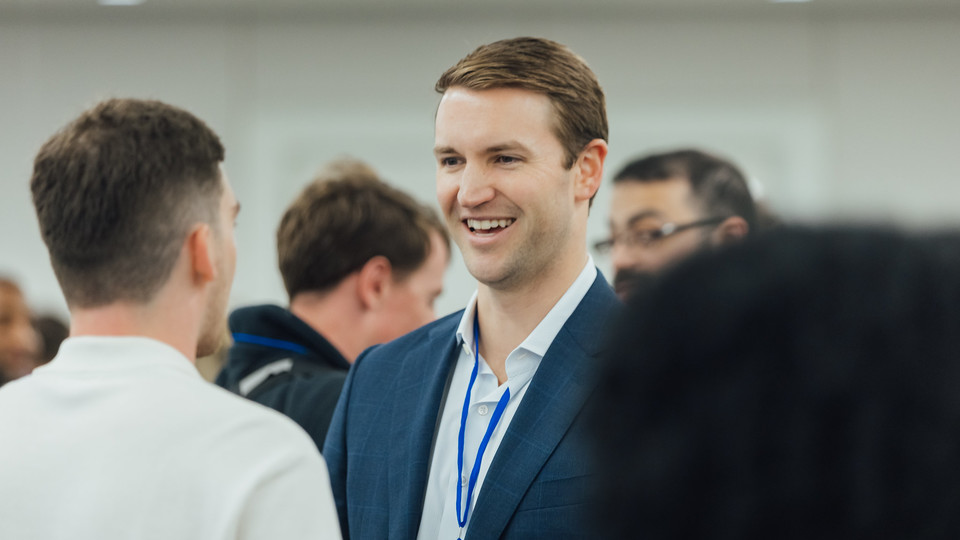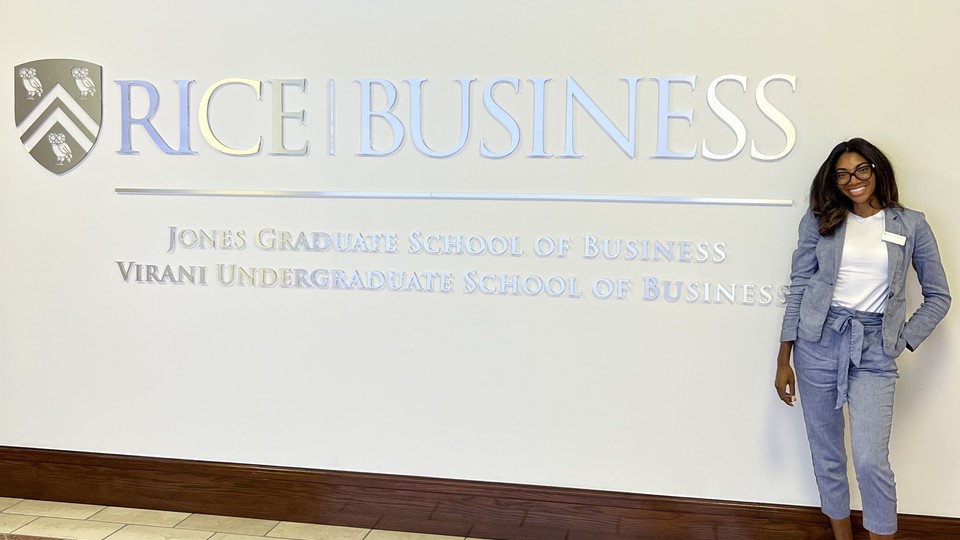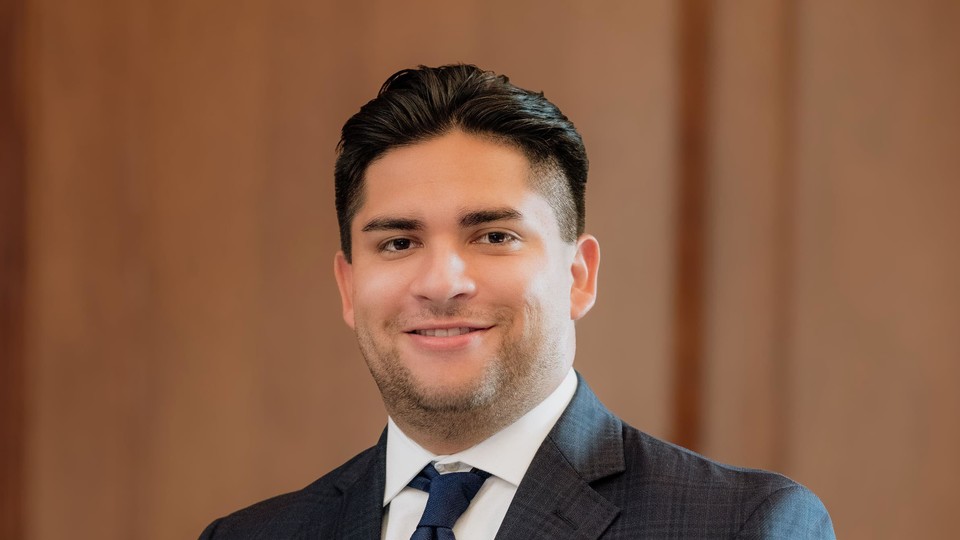2023 MBA To Watch: Siddhant Pawar
"New Enterprise was the best course I took at Rice Business. This course not only taught me the steps an entrepreneur must take before launching their enterprise, but also gave me the confidence to evaluate any business idea that comes my way, and helped reduce any ‘anxiety’ I may go through as a future entrepreneur."
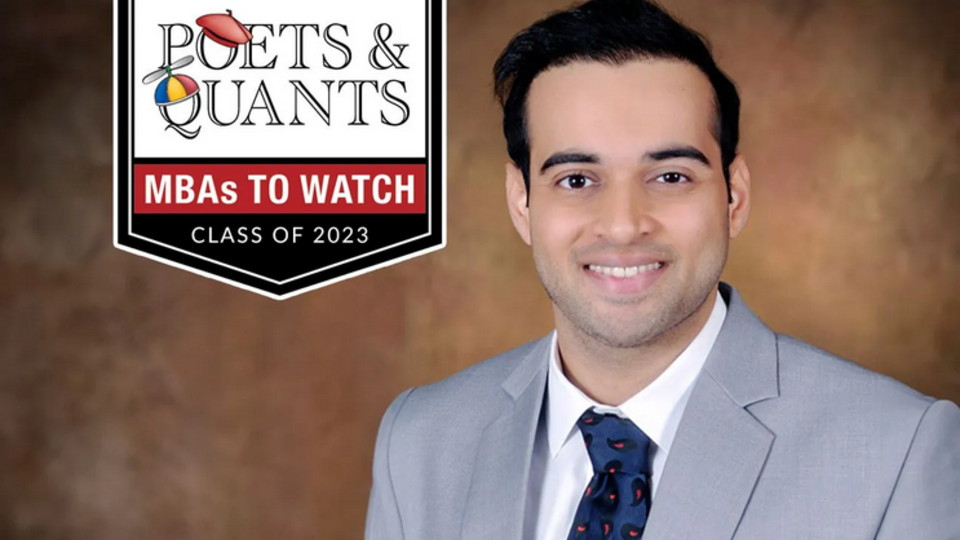
Houston Continues to Build Its Reputation as Emerging Tech Hub
“When an event like the Rice Business Plan Competition brings the top collegiate entrepreneurs to Houston, we now have the resources in place to attract these exciting innovative companies to want to grow in our community,” says Craig Rhodes, Vice President of Regional Economic Development at the Partnership.
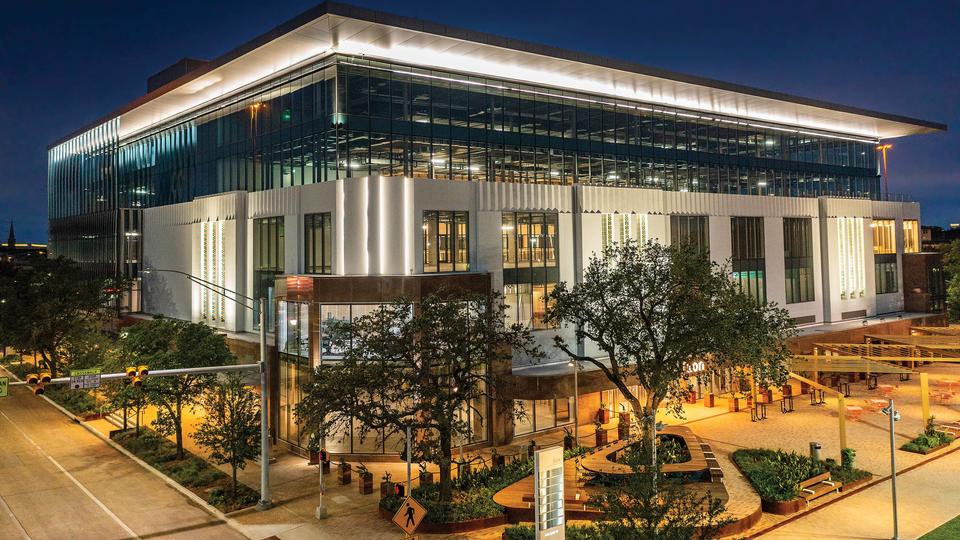
Adrian Trömel joins Rice Office of Innovation as assistant vice president for strategy, investments
Rice University’s Office of Innovation has named Rice Business lecturer and alumnus Adrian Trömel as assistant vice president for strategy and investments.
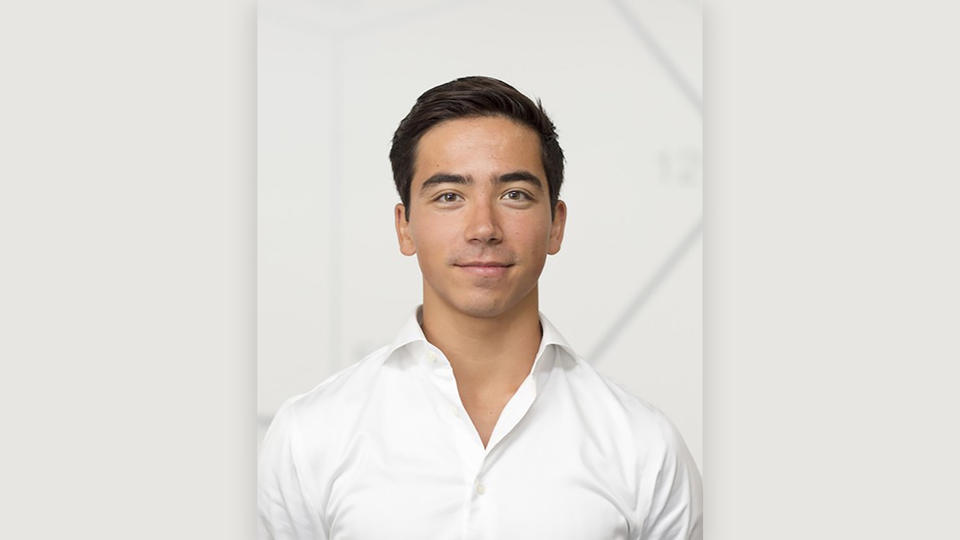
Rice University’s Office of Innovation has named Adrian Trömel as assistant vice president for strategy and investments.
In this role, Trömel will support the design and integration of commercialization structures, resources and initiatives across the university to support early-stage inventors and entrepreneurs to promote cutting-edge research and technologies. He will oversee the creation of the Nexus, an innovation institute gathering physical resources, expertise and capital to support faculty, students and community to commercialize the newest science, solving today’s toughest problems. Trömel will also lead the creation of a translational research grant fund and a university-affiliated venture fund for Rice-affiliated entrepreneurs.
He joins Rice as a materials scientist turned entrepreneur, most recently serving as chief growth officer for Hamilton Health Box, a national operator of telemedicine-enabled primary care clinics for isolated populations. There Trömel was the company’s first nonclinical employee, leading the company through triple-digit growth and partnerships with large health systems while heading business operations, finance and strategy.
“Adrian brings a broad, multidisciplinary background to the team at the Office of Innovation,” says Paul Cherukuri, chief innovation officer at Rice. “As a materials scientist and entrepreneur, his experience can be brought to bear to help faculty and students spin out new technologies and start new ventures.”
Trömel also serves as foreign trade adviser to the Ministry of Economy of Luxembourg, supporting the bilateral economic development of relationships between Luxembourg and the United States. Additionally, he is an angel investor and serves as a lead lecturer for the New Enterprise E-Lab at Rice's Jones Graduate School of Business.
Prior to Hamilton Health Box, Trömel was a biodesign fellow at the Texas Medical Innovation Institute where he co-founded CNX Medical, a noninvasive neurostimulation medical device company. He also conducted research in materials science in Switzerland under the supervision of Professor Francesco Stellacci at the École Polytechnique Fédérale de Lausanne (EPFL) and the Netherlands at Xeltis, BV. He holds a bachelor’s and master’s in materials sciences and engineering from the EPFL and an MBA from Rice.
You May Also Like

Rice University’s Jesse H. Jones Graduate School of Business today announced the launch of its Graduate Certificate in Healthcare Management program, a 10-month, credit-bearing professional credential designed for current and aspiring leaders seeking deep expertise in the business of healthcare.
Everything Is a Business, Including Journalism feat. Kalyn Norwood ’22
Season 3, Episode 23
Host Maya Pomroy ’22 turns the tables on White House correspondent Kalyn Norwood ’22 and asks her about her unconventional path. Kalyn describes a day in the life of a White House correspondent and how Rice strengthened her understanding of her craft.
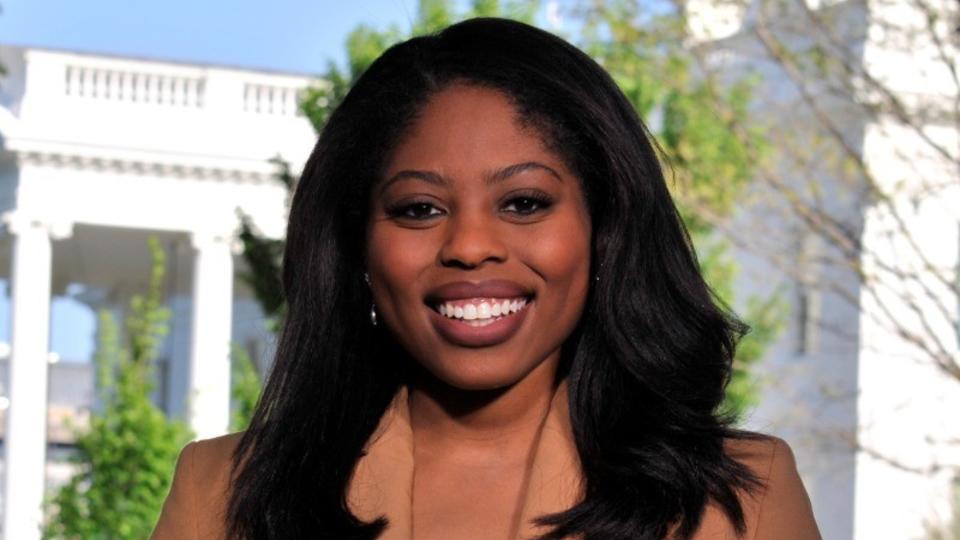
Owl Have You Know
Season 3, Episode 23
It’s not every day that you talk to a reporter with an MBA. In our new episode of the Owl Have You Know podcast, host Maya Pomroy ’22 turns the tables on Kalyn Norwood ’22 and asks her about her unconventional path. Kalyn describes a day in the life of a White House correspondent and how Rice strengthened her understanding of her craft.
Subscribe to Owl Have You Know on Apple Podcasts, Spotify, Youtube or wherever you find your favorite podcasts.
Episode Transcript
-
[00:00] Intro: Welcome to Owl Have You Know, a podcast from Rice Business. This episode is part of our Flight Path Series, where guests share their career journeys and stories of the Rice connections that got them where they are.
[00:14] Maya: On today's episode of Owl Have You Know, we connect with Kalyn Norwood, online MBA of 2022. We turned the tables a bit on this award-winning journalist and asked her a few questions about her unique and unconventional flight path, from being in front of the camera to hitting the books. She shares a day in the life of a Washington D.C. correspondent and how her Rice education has strengthened her ability and understanding of her craft. She also shares what she hopes the future of journalism has in store.
Today on Owl Have You Know, we have Kalyn Norwood, online MBA of the class of 2022. Welcome, Kalyn.
[00:53] Kalyn: Thank you for having me, Maya.
[00:55] Maya: Well, this is our third try. I'm going to, I'm going to just throw that out there, because the other two times, you had a lot of breaking news going on, which was phenomenal. So, I'm just going to say that, if you have to run, everybody understands.
[01:08] Kalyn: You'll understand, I appreciate that. We can't control breaking news, right? That's why it's breaking.
[01:13] Maya: Well, absolutely. Exactly. And that's why we want to talk about this phenomenal journey that you've had. You're an Emmy Award-winning journalist, and you're currently the White House correspondent in the Washington Bureau for Hearst Television. I just want to start from the beginning. So, when did you know that you wanted to be a journalist?
[01:30] Kalyn: Oh, good question. Let me go back a little bit. I got bit by the bug in high school, I think. I have to say it really started when I was part of this debate program in my local high school, of course. And there was a news team, right? They decided to do it for the first time. And I had the opportunity to gather some information and share that to a panel. And that's when I realized I like informing people about what's happening.
And it was, like, it clicked. It was like a light bulb moment, one of those "aha" moments, I think, as Oprah says, right?
[02:07] Maya: Yes.
[02:07] Kalyn: So, and it really intrigued me. And from then on, the rest of my high school journey, I decided to take some journalism classes and be a part of yearbook so I could get used to writing and talking to people, some people I don't know, because that's a big part of the job is, especially in local news, you talk to strangers on a regular basis and you have to be able to connect to people and find a way to share their story and stay true to their message.
[02:34] Maya: Similar to podcast hosts. I'm just going to draw that.
[02:37] Kalyn: Yeah, right, very similar.
[02:39] Maya: So, what did your parents say when you came home and said, "You know what? I think this is what I want to do with my life?" What do your parents do?
[02:47] Kalyn: So, my dad works in the cloud space. You know, I'm not a techie so I can't give you all the details there. But, you know, the cloud and how things are stored right on your phone, etc. At least that's how he explains it to me. And my mom is a small business owner, works in marketing. She also does a little bit in the journalism space here and there, but generally, had her own small business.
And so, when I was in high school, I told them, I was like, "I think this is the direction I'm headed." They were honestly surprised, because for years growing up I said I wanted to be a lawyer, I wanted to be an attorney, because I guess you could get into debates every now and again, right, as a kid. A big, kind of, reader and someone who liked to have a fruitful debate on topics. And that was the direction that I thought I was headed for a long time, just really until that moment in high school where I was on that debate team.
[03:39] Maya: So, you grew up. You went to USC, the Annenberg School of Journalism. Go Trojans, right?
[03:46] Kalyn: Right on.
[03:47] Maya: And then, you took the typical path of a fresh broadcast journalist out of school. You know, you start in a small market. You were in Eugene, Oregon, and then, I believe that you went to KVUE in Austin. I had got some of my journalism chops at FOX 7 right down the road.
[04:05] Kalyn: Nice, yes.
[04:06] Maya: Yeah. I was at... I worked at FOX 7 for a little bit. And then, you went to KOAT in New Mexico.
[04:13] Kalyn: Yeah.
[04:13] Maya: And that was... So, wait, could you give me, like, the timeline of when did you land in New Mexico?
[04:21] Kalyn: So, that was the most recent job opportunity, and that came during the pandemic. Actually, I was working at KVUE, and ended up extending my contract because of what was happening, right, with the COVID-19 pandemic. A lot of companies froze hiring during that time period. And it was an interesting space to be in, right? We all remember it in some fashion. And then, what some people probably don't know about the journalism industry is that we're all hired on contracts, right? Two-to-three-year contracts, you can decide to stay. But obviously, a lot of the times, the opportunity ends up being in another market, which is why we move around a lot. That's your promotion, I guess — moving up in a market or taking a bigger role somewhere. And Hearst was one of the companies I'd heard great things about, just how they treated their employees and how things were managed. And I saw a great opportunity to go somewhere new, go to Albuquerque, New Mexico. Also, not too far from family in Dallas, right, comparatively, to where I also went to school in California. So, this was a little bit closer. So, I could get a quick flight home. But there is an opportunity for me to become an anchor reporter there, and decided to take it. So, I took that job in 2020.
[05:31] Maya: So, was that before or, I guess, or after the George Floyd protest that you covered? You covered the Austin bombings before that when you were at KVUE, and then also the COVID-19 pandemic. So, tell me about those experiences, because those were really monumental shifts within our culture here in the United States. I mean, the pandemic, obviously, was a monumental shift for everybody, but I think George Floyd really was at a time where everything took a significant pivot and everybody started to look around and recognize that there were, there were some fractures within our society. So, it almost seemed like a perfect storm.
[06:12] Kalyn: Yeah. I mean this... it hit around the same time. And just thinking back to those protests and covering them on the ground, I mean, you could feel the intensity of the moment, right? It's something that we haven't seen really in the younger generation, especially, really, since the civil rights movement. And so many people took to the streets across the country, and that included in Austin, where I was reporting at the time. And I remember, when we were on the ground, we really didn't know what was going to happen next, just because the tensions were so great between those who were protesting and police officers at the time.
And it was a risk, I think, to be so close on the ground and in the middle of things because some things would go on... be set on fire and I know police were trying to protect themselves as well and didn't know how that response was going to play out. And we did have to get security for journalists, just so that we could still cover it and still feel safe in some regard and do our job and be a... tell this part in history, this moment in history. And, you know, I was grateful to be able to cover it, because I think, in any society, right, as a journalist, you want to cover the big moments, right? You want to be able to be that first draft of history. And that was one of those opportunities to do it, as big of a moment as that was.
[07:39] Maya: First draft of history, I really, really like that. That's very, very accurate. I think that, a lot of times, people don't recognize, you know, the courage that journalists have to have because you are literally in the middle of bombings and gunfire, and you really have to just go out there with the faith that you are the one that has to go tell that story because that's part of the Constitution, really.
[08:02] Kalyn: Yeah.
[08:02] Maya: That's your job. And I think that a lot of people look at journalism now because you're right in the middle of the fake news movement as well, where if people don't like what they hear and it doesn't fit their agenda, then it must be fake. So, I want to talk to you a little bit about that. So, how do you deal with this movement, also, a negative movement of the media and people shutting down the media and only taking out bits and pieces of what fits their own echo chamber and their own narrative, really?
[08:36] Kalyn: Well, I mean, I guess first, often in response to that, it can be tough as a journalist because... especially in local news. You're just a member of the community. It's like I want the truth as much as the next person wants the truth, which is why you get into this business to, often, discover what that truth is. And, you know, I say this all the time, where it's like a fire is a fire, right? A crash is a crash. And especially being a member of your own community, you're not wanting to slant that. So, I think the attack, maybe, was…from some was misguided, saying that we... majority of journalists. You can't speak for everyone, right? Because we're all individuals, just like any fraction of society, you know, there's outliers; but as a whole, journalists are honestly just trying to do their jobs and serve the community. And especially, coming up in the early stages, it wasn't a high paying job. I did it because I was passionate about it and I really felt like I could make a difference and shed a light on issues and allow people to have their voices heard and be that voice in the newsroom when something happens and you feel like, "Oh, hey, this is a really interesting story that we have to tell," and hopefully help people along the way. So, you know, that is a challenging thing. I think people sometimes do confuse, maybe, the day-to-day news coverage with opinion journalism and commentators. And those are separate entities. And I think that's the best way to just explain, okay, here's what we do. We just bring a camera out. We bring a mic. And we're just a mirror for what's happening in society.
[10:11] Maya: Right, the commentators interviewing the other commentators is very different than journalism.
[10:17] Kalyn: Uh-huh.
[10:18] Maya: And that gets grayed and confused a, a little bit. And, and also, you know, the thought that journalism and being a news anchor and being a broadcast journalist is just, you know, so glamorous, which it isn't.
[10:31] Kalyn: Yeah, yep, yep. It appears to be. It appears to be.
[10:35] Maya: Right. But they don't know about the getting up at 2:00 in the morning and working until 11:00 at night and not eating all day and running from place to place and trying to really get to the heart of the story. What is the most challenging part of this role for you?
[10:51] Kalyn: The most challenging part of this job, I think, is trying to get to the heart of the story, right? The part of the story that really impacts everyday Americans. Because you'll see it from any administration, any politician, maybe the message they want to get across, but you have to really do your own digging and research and talk to analysts, economists, and say, "Is this really going to help people?" Because remember, these are elected officials. And most likely, they want to get reelected. And you have to fact-check and see exactly how their policy position is going to help people. And maybe, do some homework, right? Has this actually benefited people by doing digging and doing some research to get to the core?
And I think that's what our job here, especially in Washington, whether you're covering Congress or the White House, is to hold officials accountable, right? I mean, it's one thing to say something, but do your words match up with the actions you have taken? And I think that's where we are hopefully that bridge, that spokesperson for, you know, American communities, right? And that's the goal, is to raise those questions, those issues that people have in communities to their leaders.
[12:07] Maya: And so, what do you, what do you enjoy most about your role right now?
[12:12] Kalyn: Probably, a few things, right? It's not necessarily one or two, but I would say, generally speaking, I do like being able to, kind of, pose those important questions to officials, right, whether you get to speak to a secretary or you're speaking... you know, raising questions. And then, also, we have a seat in the briefing, so asking questions in the briefing room. Just being able to, kind of, I've said this before, be a part of history, right, in a way, and make sure that the people, you know, in the communities that you're covering, especially we represent local news stations as Hearst Television, so it's Hearst owns a bunch of local news stations, for those who don't know, and raising those questions, right, what we're seeing and hearing on the ground and seeing if the administration is holding their end of the bargain on issues.
So, I do, I do like being front and center, being able to pose those questions to officials. But also, I mean, I've learned so much, just to be candid, being in this role, because you're talking about so many big issues day-to-day, right? So, yesterday I was talking about the second state visit of President Biden's presidency with the South Korean president, and learning about... you know, digging into those relations, right, and what's happening with North Korea as well. So, you're talking about foreign policy and foreign relations one day, and then the next day you're talking about domestic issues and the economy and inflation and really digging into the numbers. And I think it's... I like being informed and I like being able to share that information with others, which is the job.
[13:53] Maya: Yes. And you've had a very unconventional flight path. So, let's pivot to Rice. Why did you decide to go get your MBA?
[14:01] Kalyn: You know, that's a million-dollar question. I always, I always wanted to go back to school or know... knew that, at some point, I would. The question was, when would I do that? And what would I be getting my master's degree in? And at the time, the MBA, it just made sense. I felt like I would learn a lot. I mean, everything is a business. And then, I would be able to apply that even to the job that I currently have, right? It'd just be educational, but it could also open new doors. And the timing ended up being right in the beginning of the pandemic. And I'm a Texan. So, for those who don't know, I'm from Dallas, Texas. I was looking at other programs across the country, but really decided to settle and focus on, you know, my home state. I grew up, you know, knowing what kind of institution Rice was and the high level of education that Rice provides. And, you know, I didn't end up going my... for my undergrad, but I was like, you know what? This is my chance to, you know, go to a Texas school. And I knew that Rice had a great MBA program and also a program that provided the flexibility that I was looking for to still continue my career but also gain a degree in business. And that's what the MBA@Rice Program allowed me to do, allowed me to do both. So, I was able to continue progressing in journalism and then also gain that new knowledge.
[15:35] Maya: Because you chose the online MBA.
[15:37] Kalyn: Yes.
[15:37] Maya: The MBA@Rice program. And that was actually the one that I was considering as well. So, I'm the class of '22, but I did the Executive MBA program, but I was seriously considering the online one, because I was in the same shoes as you, where I was like, "Ah, there's a pandemic. And is it really going to be in person, or is it not going to be in person?"
[15:55] Kalyn: It was a question mark because so much was even being shifted online.
[16:00] Maya: Right.
[16:00] Kalyn: So, it just made sense. I mean, I was like, well, if I even do it in person, I feel like a lot of these classes are going to be shifted to Zoom anyway, and you're going to get a similar education. You know, of course, with the MBA@Rice program, videos are async videos and they're already online pre-program for you to watch. So, it was an easier transition, of course, because that's the platform it's meant to be on.
[16:21] Maya: Yes. And so, tell me about the relationships that you made through the online program with your cohort.
[16:28] Kalyn: So, I was actually surprised. And it is part of the reason why I did pick Rice, too, because I think the university does a good job in making sure you can still make those personal connections with people, because they're live Zoom classes, right? You're not just watching async, because I know some programs really just focus, okay, only async videos and you're really not getting to know any of your classmates. But because we had async along with live sessions, you know, you see multiple people in classes regularly and you get to know them.
And I think we all learned through the pandemic you can still build, you know, important and great relationships via phone and via Zoom and even via text, right? So, I mean, it's not completely lacking. You know, we love in person, but you still can build important relationships that way. And I think that carried over, especially with the hybrid part of it to, where you could still go on campus occasionally. So, I did come to Rice a couple times. And then we also had our trip overseas that I was able to be a part of at the end of my program. So, you still build those important relationships. And I'm friends with people. We stay in touch on LinkedIn or social media still, so...
[17:37] Maya: What was your favorite class?
[17:38] Kalyn: Well, the one I'm using the most right now is economics, right? We're covering the economy. I feel like I'm forever going back to things that I learned in that class because it's just practical experience and knowledge that I'm using in my day-to-day job with concerns that we could enter a recession, right? People are talking about that regularly. So, that one is just one that I use more. But I would say my favorite would probably be the classes where, like, entrepreneurship classes, because I've always also been intrigued in the ability, right, to create your own business and space and being your own boss. And so, those classes were just very interesting, like, how a company has even started. Rice provides you that good platform to explore and to start something from the ground up.
[18:30] Maya: Let's pivot a little bit and talk about who you look up to the most in the field of journalism. Who do you look up to the most and why? Because I know who my person is. Like, a Christiane Amanpour and a Martha Raddatz, I mean, those are. But I mean that ages me, right? So, that tells you exactly, like, when I was... who I was watching when I was in journalism.
[18:49] Kalyn: No.
[18:52] Maya: But, you know, who are yours? Who are those people that, you know, you would be starstruck by if you haven't already met them? Who would you want to meet in the industry? And what would you ask them?
[19:05] Kalyn: So, two parts. First, and this is a former journalist, of course, would be Oprah. Just growing up watching Oprah's show and just how she connected to people in interviews. I think, just watching her interview style is one that I admire. I mean, you'd see her glance at her notes occasionally, but she really listened to the person on the opposite end. I think that's what drew the audience in, was her ability to really connect and pay attention and ask thoughtful questions. You could see the prep, because I mean, especially, you know, I do that in interviews today, but the prep work that goes into big interviews, you really need to know your interview subject. And to me, that was evident in the interviews that she did. So, of course, if I ever met her, I would, I would be thrilled. And yeah, that would probably be one of the few that I'd be starstruck.
And this one is probably... I mean, it's more general, but it's really the peers, right? Being in this White House correspondent space, I admire all of them. I mean, just being in the briefing room. And we... I think, as a cohort or as colleagues… feed off of one another's questions and you admire each and every person that's in the room. And I think there is an appreciation because we never know who's going to get really called on in a briefing. But there is an appreciation for someone following up on, maybe, a question that wasn't directly answered as someone had hoped, right, and feeding off of each other to make sure that we get the answers that are needed for folks. But just finding a way to continue to, kind of, hold leaders accountable. I mean, I admire, generally, White House correspondents here because everyone is doing, what people don't realize, a round-the-clock job, right?
[20:52] Maya: Right.
[20:52] Kalyn: You're always on. And just the work and dedication that goes into it, the work ethic of the journalists in Washington covering national politics, I admire it.
[21:02] Maya: I'm also curious about – journalism is typically a white male-dominated industry, or had been for generations. You know, I mean, you had the Walter Cronkite and you had Peter Jennings and you had Dan Rather. I mean, I can go on and on and on. And then, you had, like, Diane Sawyer, who's also phenomenal, and Barbara Walters. But, in general, how do you navigate being a woman of color in a historically white male-dominated field?
[21:30] Kalyn: You know, I think if you look, kind of, in this space, and I keep referencing the briefing, because that's when you see it clearly, because I know most of the time, we're all just running around to another destination, there's been growth, there's been improvement. We do see more women that are represented as White House correspondents, especially among the big networks that are primarily led by women right now as White House correspondents. And then, women of color, there's more, but I believe there's more work to do. That is an area that, you know, I think there could be growth. But for me, what's more important is that I represent the people I'm intended to represent. To me, diversity is only an asset, you know, not a liability because you're presenting or representing a community, right, that's part of America's society?
[22:22] Maya: Yes.
[22:24] Kalyn: And it should only be seen as an asset, because there's more that connects us all. We all have faced similar issues, not the same, but similar issues. And I think if, collectively, the more diversity of thought, of mind, of experience that's in the room, we're only going to get more accountability and better answers from the officials that, you know, we're asking questions to.
[22:48] Maya: Sure. And so, what would be your advice for other women of color looking to make their mark in this industry. So, if there is a little girl listening right now that wants to pursue journalism in a fairly polarized society right now, what advice would you give her?
[23:07] Kalyn: Initially, I would say, be bold. Don't let your difference or how things appear right now, especially if you have years to go right before you get to X, Y, and Z destination, because it is a journey. Things are likely to change by the time you get there. So, don't be intimidated by how things are right now and closing yourself off to a certain career path or a position because you haven't seen anyone that looks like you doing the job. You could be that first.
[23:38] Maya: Right.
[23:38] Kalyn: So, just prepare as if you're able to do the job. And hopefully, by the time you get there, you can be someone that other young girls look up to.
[23:49] Maya: Like you are.
[23:52] Kalyn: Very kind.
[23:53] Maya: No, it's true. It's true. So, what are some of your goals for the future?
[23:58] Kalyn: I mean, honestly, this is a space where I'm learning a lot. And I'm enjoying covering Washington, covering... I still do dip a little bit into covering Congress, but of course covering the White House. And right now, I do want to really dig into this space, and I can see myself doing this for a while. But I feel like this is one of those businesses where you don't really know what's going to happen next.
[24:25] Maya: Nope.
[24:26] Kalyn: You really can't predict it, right? Because I think timing's everything and just how things shift and change. So, I think there is a bit of a question mark, but I do like covering national politics and especially the White House. So, I could see myself doing that, hopefully just at an elevated level each time.
[24:44] Maya: And so, with regards to competition, because there's a lot more competition now than there was 10 years ago with social media, because a lot of people get their information from social media — from Twitter, from Facebook, from Instagram, from all sorts of plethora of sources. How do you navigate that?
[25:01] Kalyn: I think our role as a journalist, as journalists in general, we’re going to really be providing the full picture for people, right? There's only so much that you get out of a tweet, right? That's a headline that tells you the shock factor, I guess, of the story or what someone said. But you're missing so much in that tweet. And I think it's... there is an emphasis that is being made, maybe, from the top. And hopefully, what people…they'll get more from a full local news story or from even watching network news, that you're actually going to get the full story. You're going to hear from someone who's on the ground where that event took place. Because I think there is something that's missing, right, if you're just getting a Facebook alert or, you know, you're getting alerts on your phone. Because sometimes, people... you know, you don't necessarily always click, right? You don't always click to read the whole story.
[25:56] Maya: Right. That's the problem. That's the problem
[25:58] Kalyn: Right, that is... So, I mean, to me, the role of local journalists and those that air on local TV stations, kind of, like the work that we do here at Hearst TV, is to really provide that value, right, to provide that background. So, we did the digging, we did the research. We talked to both sides, Republicans and Democrats, on this issue. You saw the headline, but here's the full story, as much as we can give you. You know what I mean? Like, here's the rest of the story. Here's what both of your interested lawmakers are saying on this. And I think, you know, if you continue to do a great job to provide value to people, you know, they'll watch your stuff.
[26:39] Maya: Proof's in the pudding. Cliche, but true.
[26:42] Kalyn: Right. Yeah. I mean, and I think just doing a good job, you know what I mean? It sounds cliche to say, “Do a good job,” but you know what I mean? Not cutting corners, right?
[26:53] Maya: Do a holistic job.
[26:55] Kalyn: Right, a holistic job.
[26:57] Maya: I don't think that there's a lot of broadcast journalists that go back and get their MBA, like you and me.
[27:04] Kalyn: Me?
[27:04] Maya: But for those, for those that are considering dipping their toe into this water, that is a very unconventional path for whatever field they're in, what advice would you give them? And why would you recommend Rice over other programs?
[27:22] Kalyn: I’m going to be honest, I've had friends that are in this business even reach out and say, "Hey, I saw that you got your MBA. Why'd you do that?" Or, "I've been thinking, I've been thinking about maybe going back to school myself. You know, can you tell me why that was beneficial for you?"
And for me, hands down, I'm so grateful that I decided to go back and get my MBA, because I feel like I have a better understanding of how the world works. I mean, I said at the beginning, everything's a business, but it really is true. I think you'll understand your bosses better and the decisions that they make. And hopefully, you can provide value to whatever organization that you're in, in a better way, understanding the big picture, right? Just taking certain classes, competition, X, Y, and Z, right? I think you just have a better understanding. And then, for me, literally covering the economy on a regular basis, it's a top issue right now in society. And hopefully, I can provide something different than, maybe, some other journalists who don't have that background. And I can provide, hopefully, a little bit more in-depth understanding or simplify a complex issue.
So, I think there are practical benefits, but I think just being more knowledgeable as a human being and a member of society, it's hard to put a price on that. And if you have the opportunity to go do it, why not?
[28:51] Maya: So, go do it.
[28:53] Kalyn: Yeah. So, go do it. There it is.
[28:55] Maya: Well, and that's also something that, you know, nobody can ever take away your education.
[28:59] Kalyn: Right.
[28:59] Maya: They can take everything else away from you, my grandmother said this, but nobody can take away your education.
[29:04] Kalyn: Grandma's right.
[29:06] Maya: Grandma's always right.
[29:06] Kalyn: Grandma's right. Yeah, grandma's always right.
[29:09] Maya: Well, Kalyn, it's been, it's been an honor and a pleasure to talk with you, and we really appreciate you carving out a bit of time to talk with us today. And we really look forward to seeing what the future holds for you.
[29:20] Kalyn: This has been so fun. So, thank you again for having me on.
[29:26] Outro: Thanks for listening. This has been Owl Have You Know, a production of Rice Business. You can find more information about our guests, hosts, and announcements on our website, business.rice.edu. Please subscribe and leave a rating wherever you find your favorite podcasts. We'd love to hear what you think. The hosts of Owl Have You Know are myself, Scott Gale, and Maya Pomroy.
You May Also Like
Second annual renewable energy leadership conference convenes at Rice Aug. 22
Hosted by Rice Business Executive Education, the Second Annual Renewable Energy Leadership Conference will be held at Rice University to explore the impact of the Inflation Reduction Act (IRA) signed one year ago.
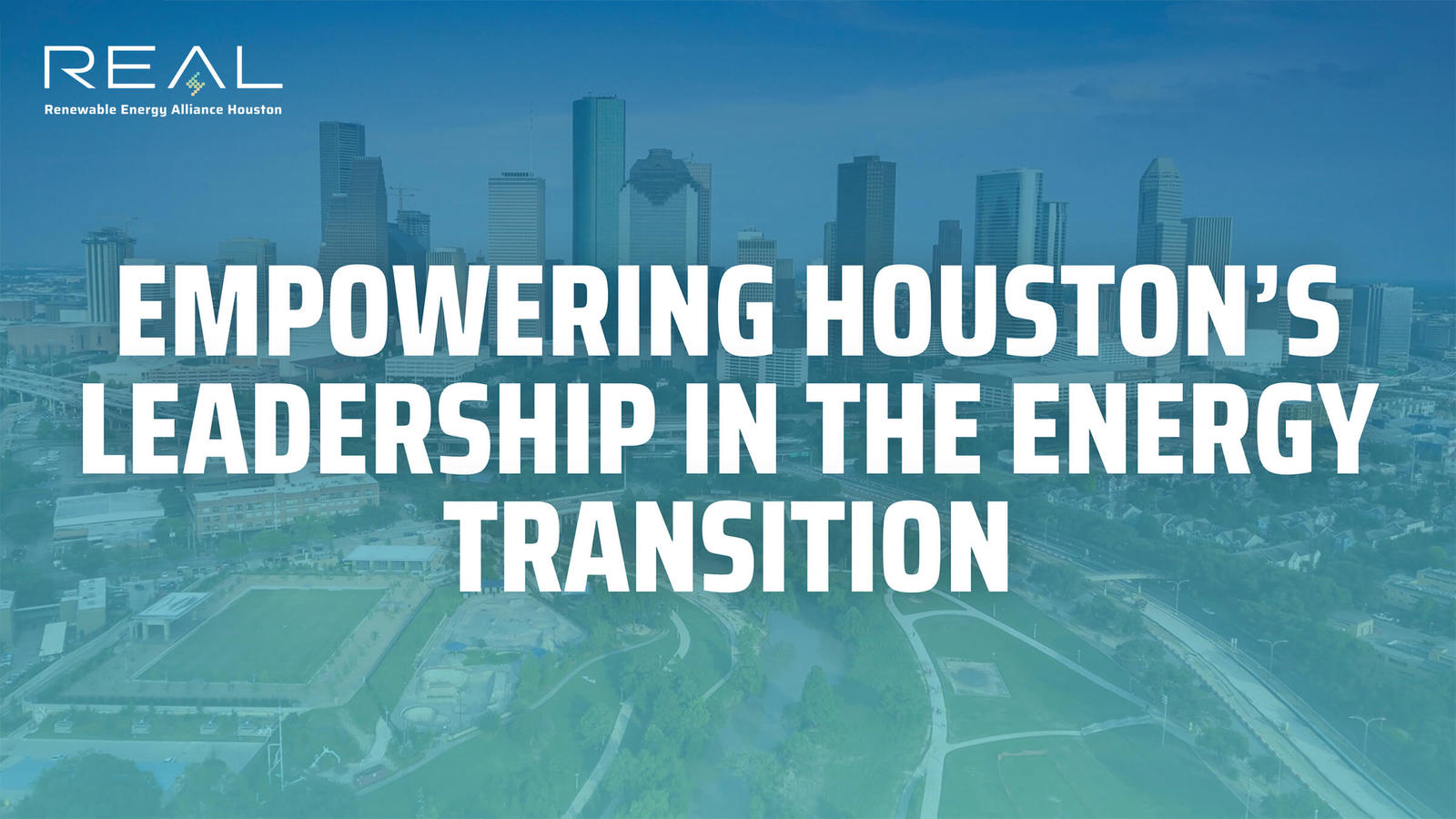
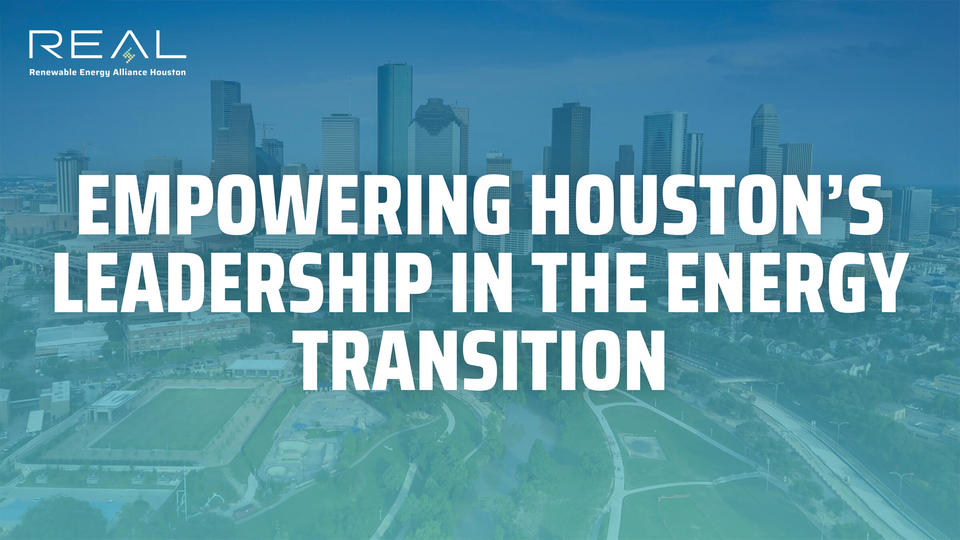
The Renewable Energy Alliance Houston (REAL Houston) will present its Second Annual Renewable Energy Leadership Conference at Rice University to explore the impact of the Inflation Reduction Act (IRA) signed one year ago.
Hosted by Rice Business Executive Education, voices from leading renewable energy companies, the U.S. Department of Energy and capital providers will gather to discuss the impact the IRA has had on Houston and beyond, and what to expect going forward.
What: Second Annual Renewable Energy Leadership Conference
When: Tuesday, Aug. 22, 2023, from 1-5 p.m.
Where: Shell Auditorium, Jones Graduate School of Business, Rice University’s McNair Hall. The parking garage entrance is just north of McNair.
Confirmed Speakers:
- Omar Aboudaher, senior vice president of development, Leeward Renewable Energy;
- Jessica Adkins, partner, Sidley Austin LLP;
- Todd Auwarter, consultant, Egon Zehnder;
- Norman Bay, head of energy regulatory and enforcement group, Willkie Farr and Gallagher LLP;
- John Berger, CEO, Sunnova Energy;
- Marie Bergeron, director of career development, Jones Graduate School of Business, Rice University;
- David Daley, regional practice manager of power generation, Burns and McDonnell;
- Fred Day, managing director of investments, Brookfield Asset Management;
- Sandhya Ganapathy, CEO, EDP Renewables North America;
- Raj Mahagaokar, CFO, Grid United;
- Gabe Malek, chief of staff, Fervo Energy;
- Greg Matlock, global energy and resources tax leader, Ernst and Young;
- Doug Moorehead, COO, Broad Reach Power;
- Martha Richards, director of talent engagement, Pattern Energy;
- Suresh Vasan, senior investment advisor, U.S. Department of Energy Loan Programs Office;
- Emily Wolf, senior director of development, Ambient Fuels;
- Nancy Zakhour, chief strategy officer, Clean Energy Services;
- Anastasiya Zavyalova, associate professor of strategic management, Jones Graduate School of Business, Rice University.
REAL Houston Board Chair Kay McCall and Rice Business Executive Education Executive Director Michael Koenig are available for interviews. Panelists may be available for interviews upon request.
Media who want to attend must RSVP to Rachel Edwards at re@renewableenergyhouston.org or 713-355-9714.
You May Also Like

Rice University’s Jesse H. Jones Graduate School of Business today announced the launch of its Graduate Certificate in Healthcare Management program, a 10-month, credit-bearing professional credential designed for current and aspiring leaders seeking deep expertise in the business of healthcare.
Newest parliament of Owls lands on campus
Rice University greeted the incoming Class of 2027 for the first time during an eventful, emotional and celebratory O-Week move-in day on Aug. 13.
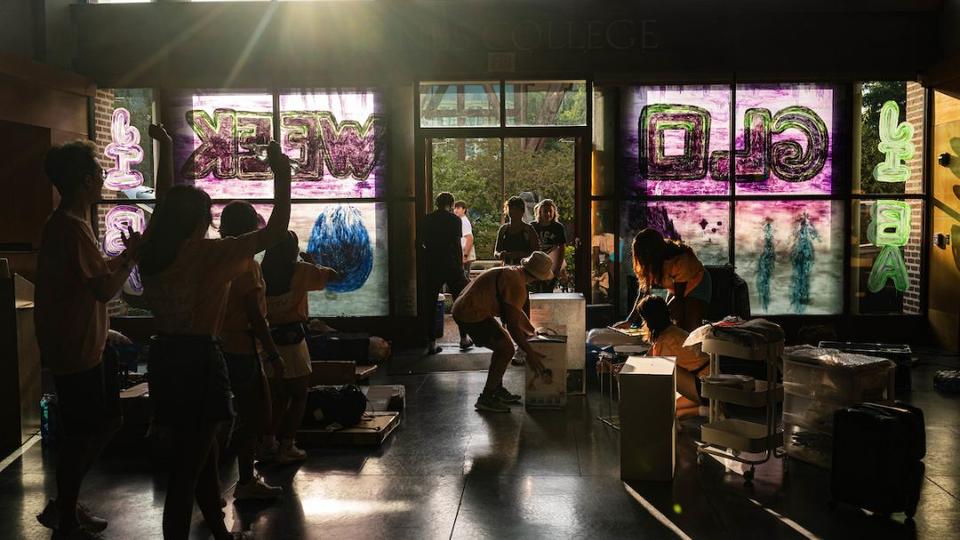
Rice University greeted the incoming Class of 2027 for the first time during an eventful, emotional and celebratory O-Week move-in day Aug. 13.
Hundreds of Rice students who volunteered to lead new students through O-Week awaited the arriving parliament of Owls as they flooded through the campus bright and early Sunday morning looking to acclimate to their new educational home.
“Move-in day is the first day that the newest Owls step on campus, so obviously we want to make a great first impression to them,” said Alan Tapper, president of Hanszen College and a senior. “Not only is it their first time on Rice's campus, it is also their first time at Hanszen, so we want to welcome them with open arms, make sure that they are included and supported, and that they have a great time.”
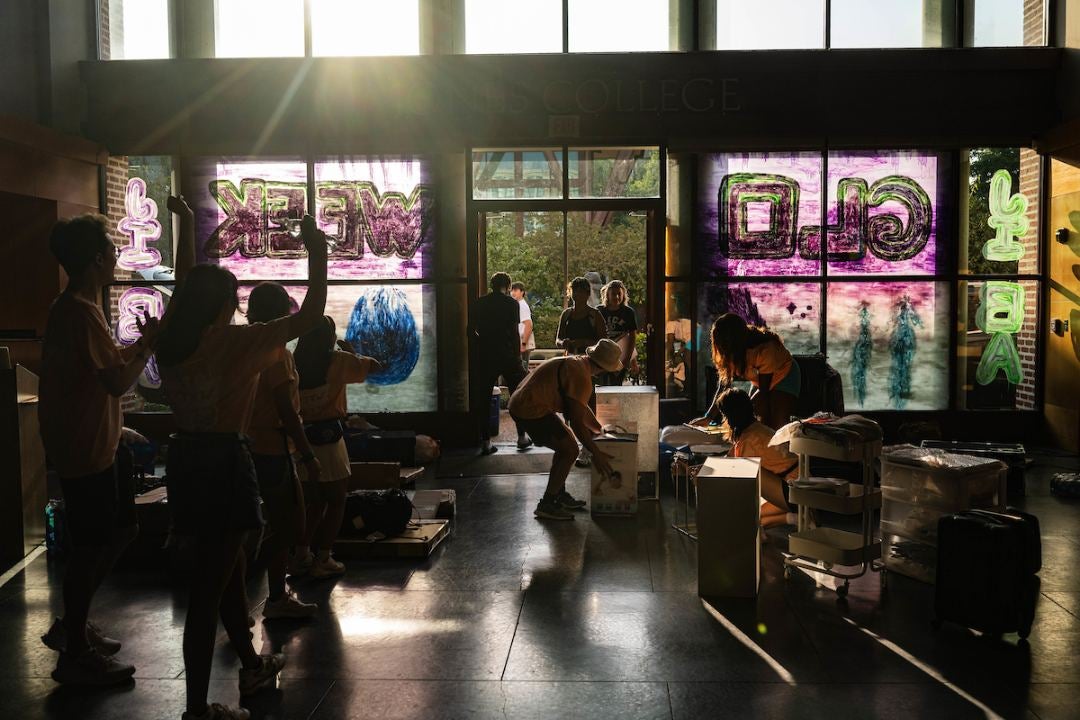
Starting at 7 a.m., cars loaded with dorm room supplies, eager students and more than a few emotional parents lined the roads surrounding each of Rice’s 11 residential colleges, the student dormitories to which incoming students are randomly assigned, one of the unique traditions that forms the bedrock of Rice’s one-of-a-kind undergraduate student experience.
The most selective class in Rice’s history, this year’s incoming undergraduate class is made up of 1,140 talented young scholars.
One of those bright academics is incoming freshman Sara Avalos-Paez, who will reside in the newly built Sid Richardson College and is a business major.
“I applied to Rice because of the state-of-the-art facilities, and I knew that the Jones Graduate School of Business’ recently established undergraduate program is going to be taught by the master program’s professors,” she said. “I knew this is an opportunity that will prepare me to work anywhere because of how good the business program is.”
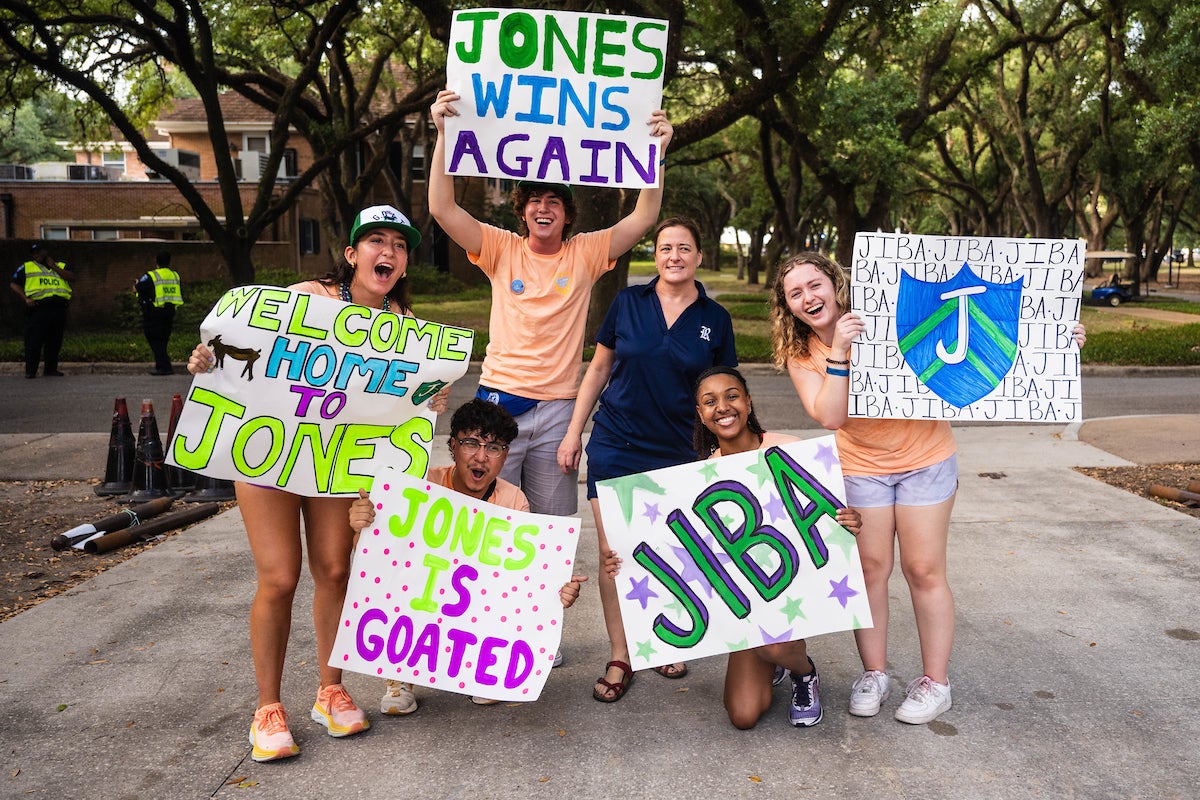
While Avalos-Paez grew up in Houston, other freshmen traveled across the country or the globe to start their academic journey.
David Lee, originally from South Korea, moved to Carmel, Indiana, and now calls Houston home.
“I think for a while it was just an idea in my head that I got accepted to Rice,” the Martel College freshman said. “I visited campus on Tuesday, and by walking through the Founder’s Court and seeing all the historic buildings and the trees … there are so many little details that you don't see in the promo videos that you comprehend when you arrive on campus. Everything is now setting in and has made me more excited than before, which I didn't know was possible.”
As each student arrived, they were greeted by current Rice students, college magisters, faculty and staff. The Rice football team helped provide some muscle as new Owls moved boxes and room decorations to their new abode, and Rice President Reginald DesRoches and Provost Amy Dittmar drove from college to college to greet students.
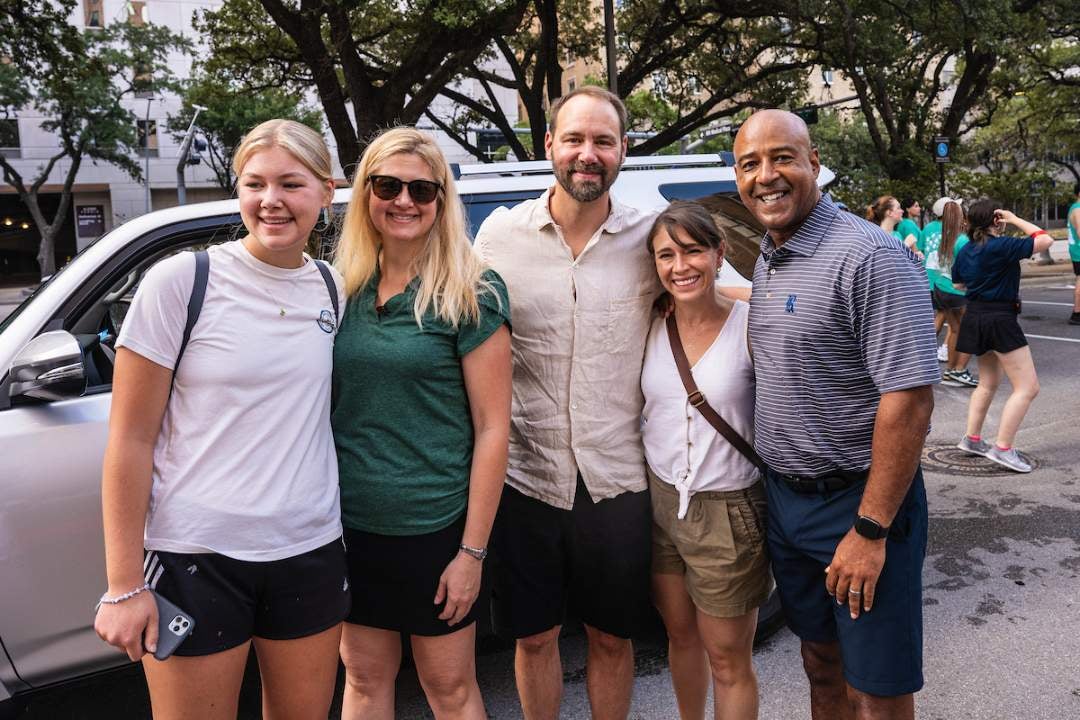
Student volunteers (“advisers” in Rice lingo) brandished hand-painted signs welcoming the newest members of their respective flocks.
Advisers danced and jumped along to pop music booming from loudspeakers, which was then drowned out by cheers from upperclassmen shouting the names of incoming students arriving in their vehicles. Each car was quickly enveloped by advisers — hand carts and dollies at the ready — leaping to the task of moving their new classmates’ possessions into their new homes on campus.
Providing extra hands for a smooth move-in process is just the beginning of the job O-Week advisers signed up for. These dedicated student volunteers will serve as mentors, friends and helpful sounding boards throughout their fellow students’ years at Rice.
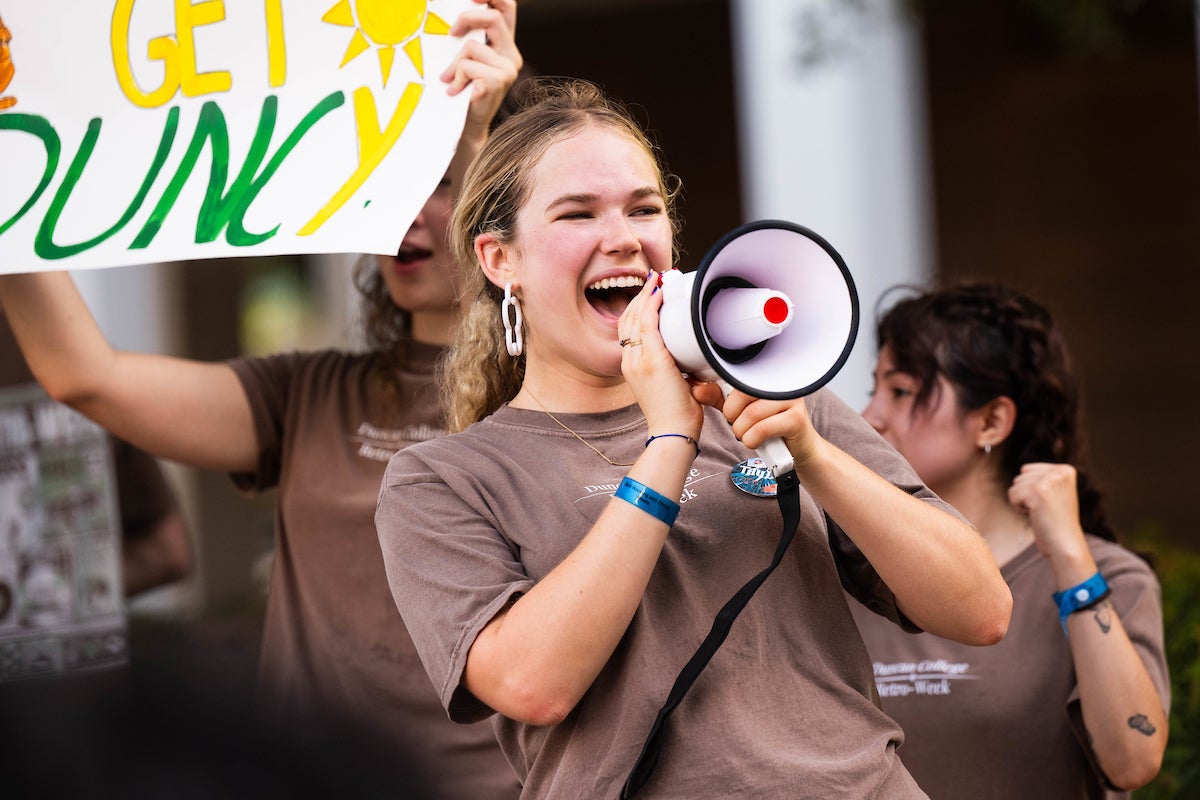
Many of the volunteers understand the importance of participating in O-Week because some of them did not receive the traditional experience due to the COVID-19 pandemic.
“I am part of the Class of 2024, so I was remote my freshman fall and my O-Week was all virtual,” said Jackson Hughes, a senior and president of McMurtry College. “I think I appreciate it so much more, being on this side of it, and I put so much energy into it because I never got it on the other side. I think a lot of the seniors feel that way.”
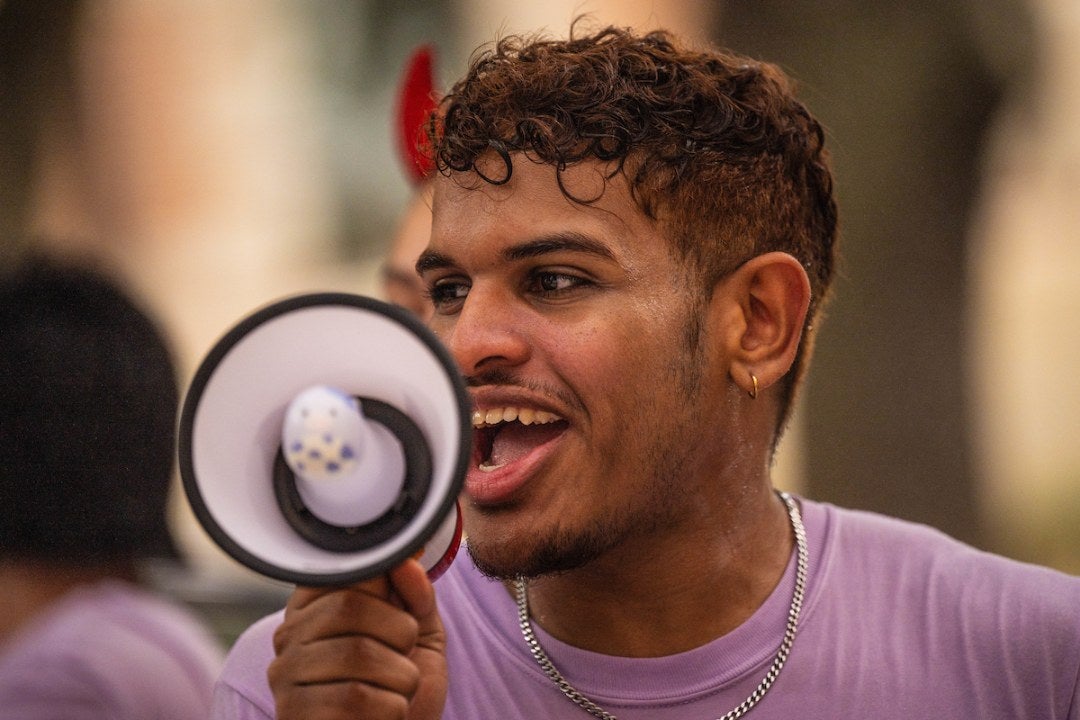
As the morning progressed, more new Owls were greeted and ushered into their residence for the next few years.
“It's sort of like unbelief and excitement and nervousness,” said Sophia Oliveira of Brown College. “We’re driving around, and I’m like, ‘Oh my god, I'm actually going here.’ It's crazy. I love the architecture. I love the campus. I love everything. I'm nervous, but I'm really excited.”
Blaire Sheftel, who is moving into Lovett College and was attracted to the university because of its small size and academic prestige, shared the same sentiment.
“It all seems very unreal,” she said. “I’m incredibly excited to be joining Rice this fall. Now that I'm here, everyone is excited and supportive for me to be here. I'm feeling a little nervous still, but I’m very ready to join.”
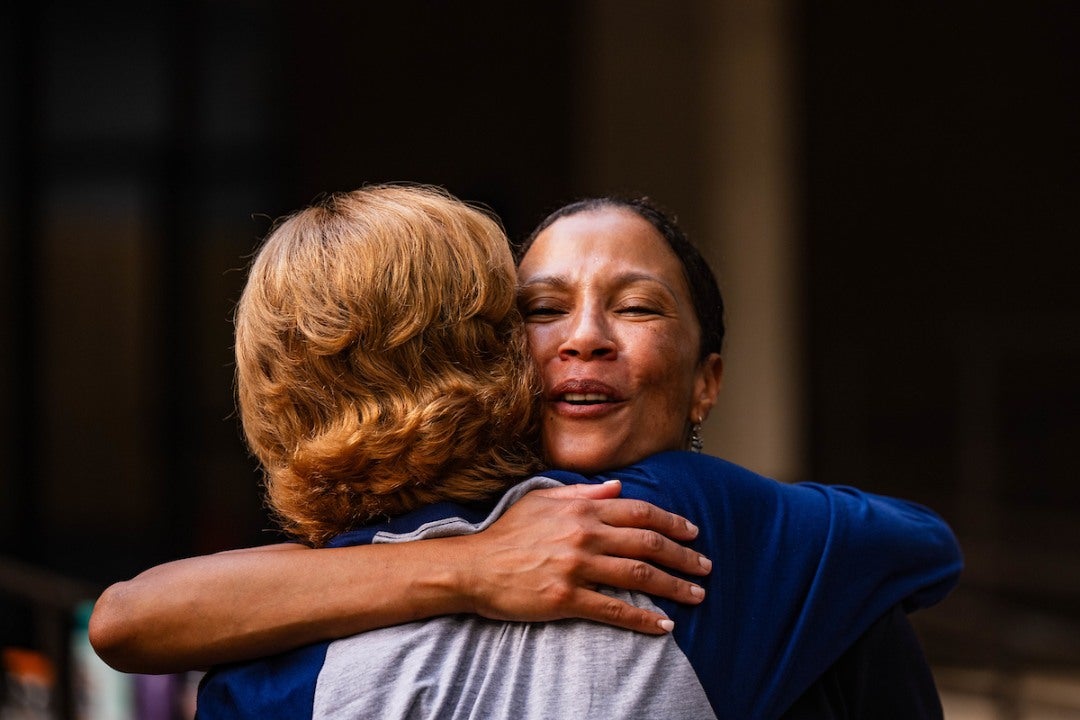
Droves of students expressed similar emotions, and like all good things, the day eventually had to come to an end … but not before one final moment spent with loved ones.
At 11 a.m., students and their families headed into the residential colleges for a buffet lunch -- the last meal the Class of 2027 would share before parents, uncles, aunts, cousins and siblings would be whisked away to family orientation presentations. Their Owls would begin getting to know the small O-Week groups they’d been assigned to, as well as the upperclassmen advisers, who lead each microcosm of the incoming class.
By 12:30 p.m., it was finally time to say goodbye. Hugs were shared as the eyes of students and their loved ones welled up. As one chapter of life ended for each student, another began anew, rife with hope, maybe a touch of anxiety, but most of all abundant excitement about everything Rice and the future has in store.
Rice O-Week participants are encouraged to include #RiceOWeek23 on their posts, videos and tweets. For a full schedule of O-Week events, click here.
You May Also Like

Rice University’s Jesse H. Jones Graduate School of Business today announced the launch of its Graduate Certificate in Healthcare Management program, a 10-month, credit-bearing professional credential designed for current and aspiring leaders seeking deep expertise in the business of healthcare.
Rice professor's eyesight restored after surgery to remove tumor — but embolism brings more trauma
Rice Business professor Al Danto's eyesight was restored after surgery to remove a tumor, but an embolism almost cost him his life.
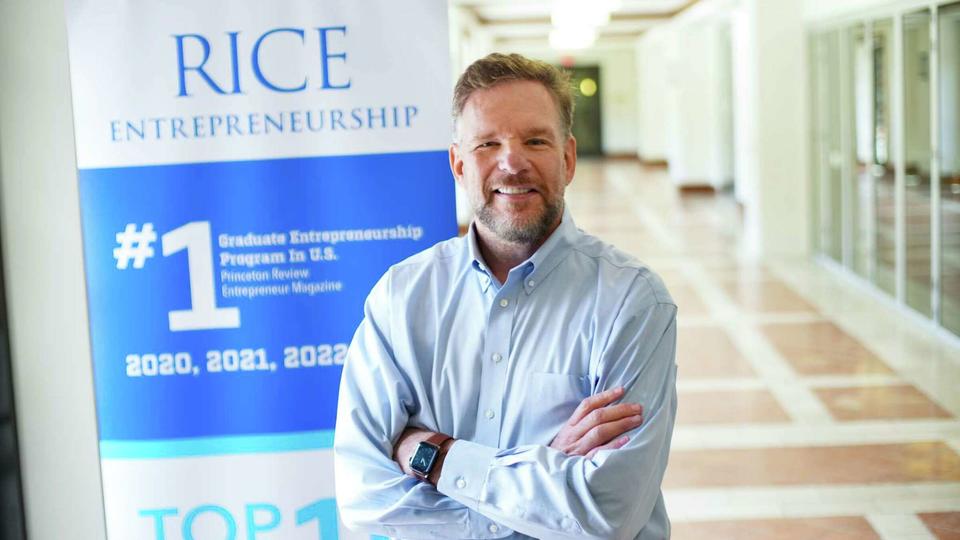
Getting Sustainability to Stick: Driving Long-term Habits in Consumers
New research from Rice Business Professor Eleanor Putnam-Farr and colleagues shows that climate friendly reminders work best when placed in the early part of a consumer's decision-making process.
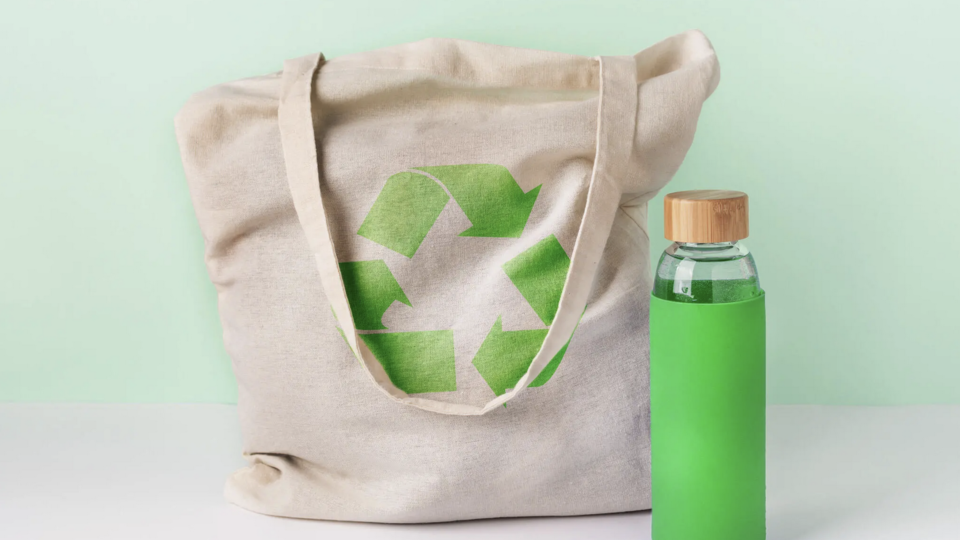
A Clinician's Journey to Join DaVita and Drive Healthcare Operations Strategy
Meet Ryan Flick, an impressive MBA student who landed a summer internship as a growth strategy intern at DaVita.
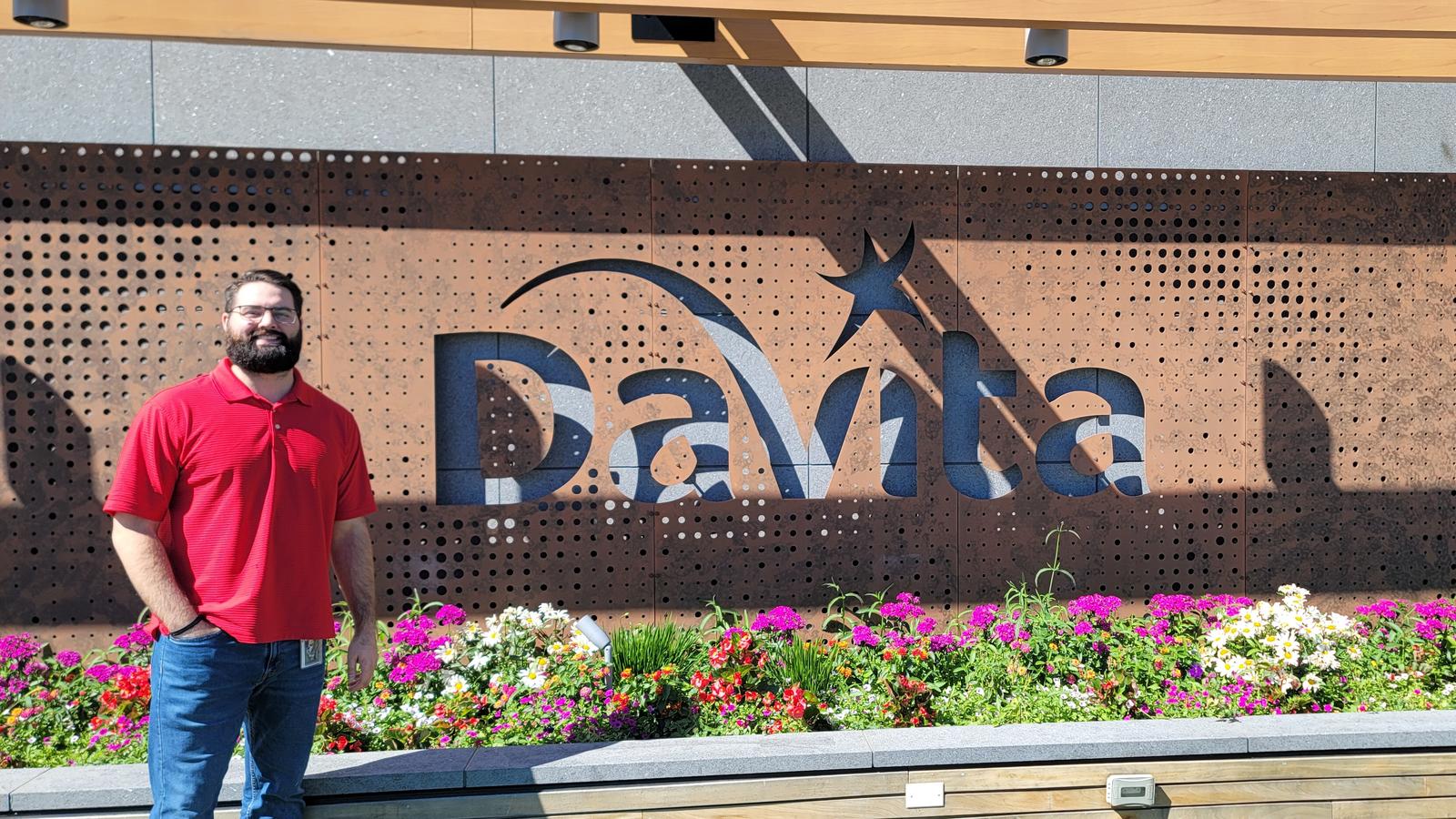
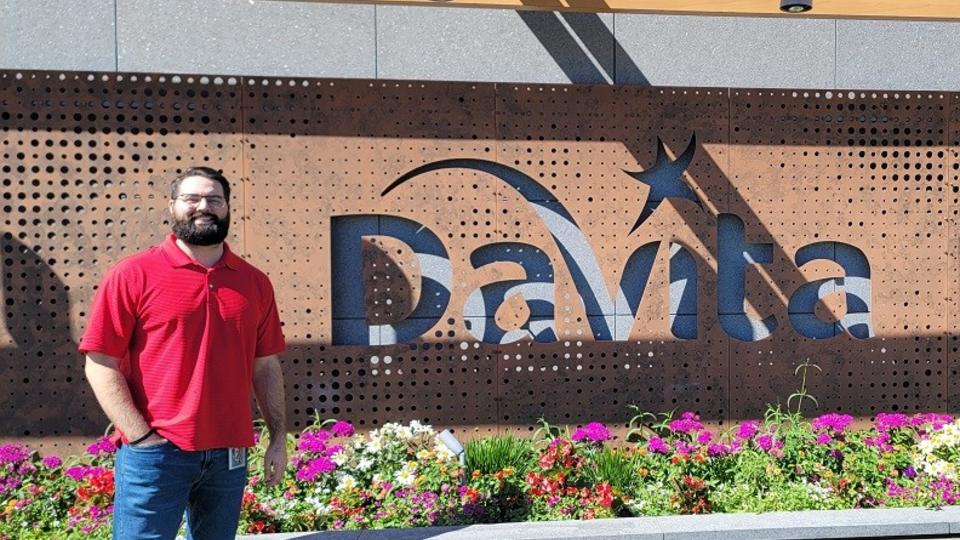
Meet Ryan Flick, Full-Time MBA '24
MBA Internship: DaVita
Internship Location: Denver, CO
Position Before MBA:
- Staff Physical Therapist: Encompass Health
- Owner: Neuro in Motion, LLC
- Lead Instructor: Integrated Kinetic Neurology, LLC
How did you secure your internship?
I networked with peers in my year and the second year. During that networking experience, I came across an opportunity at DaVita. A classmate connected me with the recruiter, and I eventually received an offer.
What is your role and responsibilities during the internship?
I'm a growth strategy intern. For my summer project, I'm working on a team that has historically generated millions of dollars in annual top-line revenue per year. The project involved mapping the admissions process for an entire region, developing best practices for each division vice president, presenting recommendations to senior executives, and overseeing change management as new processes were implemented.
What department is your internship with?
Operations Strategy
How did your MBA coursework prepare you for this internship?
Rice provides the learning opportunities needed to handle projects of this magnitude.
The coursework (especially that first semester) prepared me for the rigor of working at DaVita. Data Analysis with Prof. Weston was particularly vital to my success. Senior executives want data driven decisions. Without a confident understanding of how to combine data with intuition and industry insights, you will fall short of expectations.
Organizational Behavior with Professor Marlon was also important for understanding leadership role influence and how to navigate the complexities of interpersonal motivations within a large company.
How does the internship align with your career goals?
I pursued my MBA to escape the monotony and professional limitations of the typical clinician. My internship has provided me with unexpected opportunities to advance my career in healthcare. It’s made me a better leader and helped me contribute to driving positive change in the industry.
How do you think the internship will help you with your MBA studies or future career?
My internship provided me with more clarity on what I want out of a career and, in turn, what skills I need to develop to achieve those goals. I will return to my second year with those skills in mind and with a renewed sense of energy and enthusiasm for the curriculum ahead.
What is your favorite part of your internship experience?
My favorite part of the internship experience is Davita’s tie between professional development and cohort bonding time. The internship challenged me in new ways, helped develop my leadership and project management skills, and surrounded me with a cohort of supportive peers that made the experience more fun and engaging.
What advice do you have for prospective students?
An MBA can be overwhelming. I have two pieces of advice:
- Put your best foot forward in every class you take, every club you join, and every relationship you build.
- Things probably won’t turn out exactly as you envision, so remember to give yourself some grace throughout the process.
Interested in Rice Business?
You May Also Like
Meet Dart Bebel, Member of the Inaugural Hybrid MBA Cohort and Co-Chair of the Program's Rice Business Student Association
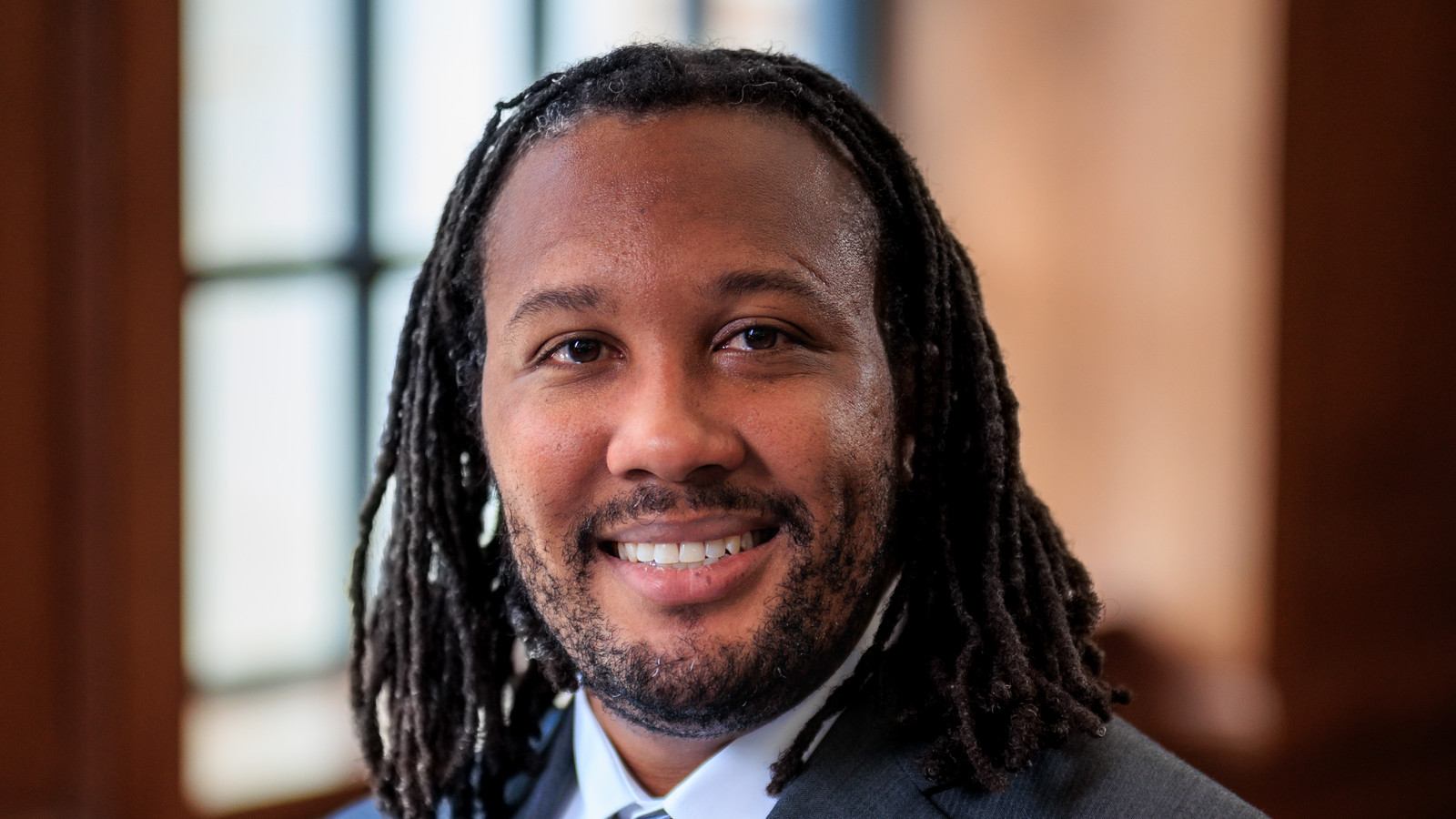
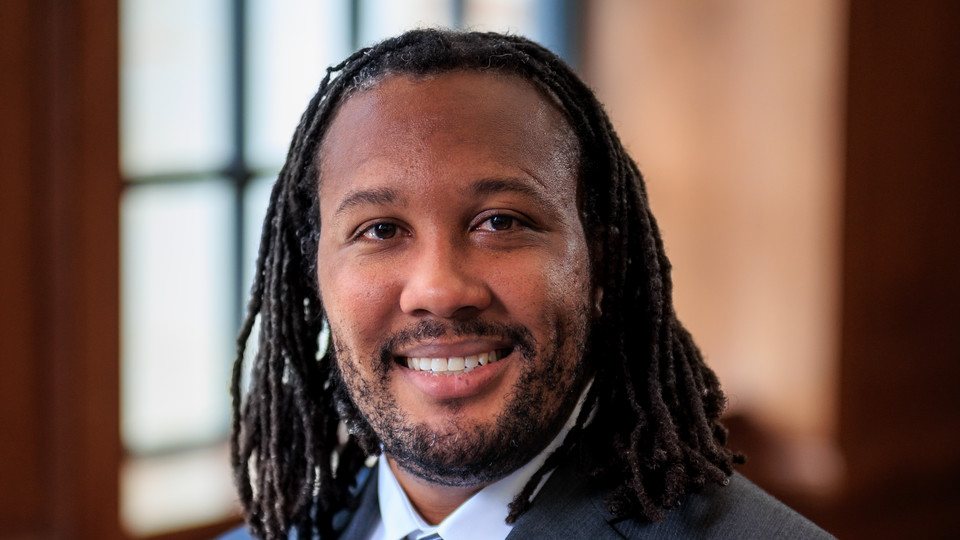
Why did you select Rice Business and why did you choose the Hybrid MBA program?
I chose Rice Business for 2 big reasons. First, I wanted a well balanced program and curriculum. I’m not sure exactly what my next career opportunity will be so it was very important to me to pick a program with an academic outline that could propel me in many directions rather than a program focused on 1 or 2 technical functions. The second reason I chose Rice and ultimately the Hybrid MBA program is because of the prestigious reputation of the faculty, staff and students. I wanted to learn and interact with the best. Both the Online and In-Person MBA program are very highly rated and so the Hybrid program allows me to experience the best of both worlds.
Can you describe your preparation process for business school?
The first thing I did was make sure that an MBA is something that I wanted and was mentally prepared for. I had conversations with my mentors and several C-Suite executives at my company. A made a list of objectives and reasons for going back to business school and discussed them point by point with people I trusted. At the end of that process it was clear to me that there was a strong benefit to pursuing this degree at this time.
What do you most look forward to as an MBA student?
The Hybrid MBA is unique in that I’m still working full-time, I live outside of the Houston metro area but I’m still getting a world class education from Rice. For those reasons, I really look forward to the monthly on-campus weekends. First, I get to tune out the distractions of home and really focus on integrating the concepts we have been learning into real life. But I also really enjoy interacting with my cohort both in and out of the classroom. I was surprised at how much learning happens over dinner and just casual conversations about our personal stories and careers.
Can you describe your professional goals after Rice Business?
I decided to pursue an MBA at Rice Business because I aspire to more leadership opportunities with Vacasa and in my career that require great problem-solving and communication skills. Moreover, I’m interested in National Basketball Association (NBA) franchise ownership and operations in collaboration with an entertainment enterprise. I really like the business of sports and entertainment. It’s also true that most sports executives build their skills and spread their influence in other industries before pivoting into sports and entertainment. The broad skill set provided by Rice Business’ MBA program will equip me with resources to be a champion executive before transitioning into sports enterprise management.
What advice would you give to someone applying to the Hybrid MBA program?
The format of the Hybrid MBA program is highly unique. Make sure that it’s an environment that will feel confident working and learning in. Individuals that are camera shy might do better in other formats. Our discussions (even online) are very lively. Also if you have weak wifi, get an ethernet cable and run it up to your router like I did. You’re going to need it!

